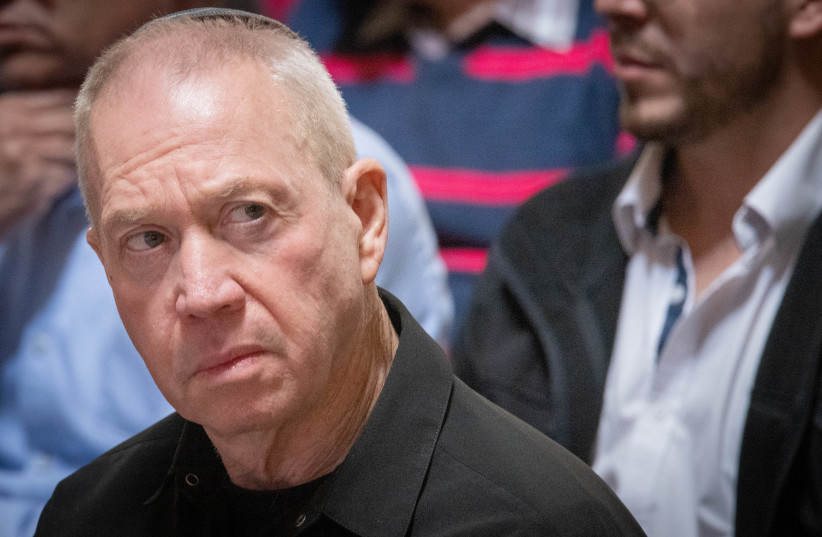Defense Minister Yoav Gallant made a—pardon the pun—gallant proclamation this Wednesday: that 60% of Hamas terrorists in the Gaza Strip have been killed or wounded as a result of Israel’s operation in Gaza.
“We killed or wounded 60% of Hamas terrorists,” he announced. “We disbanded either all of or the vast majority of the 24 battalions. We have returned half of the hostages and we are determined to return the rest.”
He added, “The action of the IDF that has so far led to the elimination of over 14,000 terrorists and the collapse of the military frameworks of Hamas is, in fact, the testimony of what I am saying – everything will be done in accordance with the law and in accordance with the operational need.”
He cited international legitimacy as a vital consideration for Israel as it moves forward with the operation in Gaza.
The issue here is that Gallant is living in a fantasy land, one in which the international community, including Western allies that have stuck with us unmovingly until now, will continue to do so if we continue onwards in the Gaza Strip.

This is not to say that our friends overseas do not currently stand with us. They do. The proof is in the pudding, the pudding being the US Department of Justice conducting interviews with former hostages, survivors of the October 7 massacre, and relatives of victims to build a case against Hamas and its financial backers, as reported by Bloomberg earlier this week.
The investigation also aims to uncover the financial networks supporting Hamas, including those from Iran and Qatar. A source cited by Bloomberg mentioned that the investigation seeks to determine if US financial institutions were involved in the financing.
Nothing is more solid than this support but Gallant’s proclamation is overly optimistic.
The international community’s patience and support are not infinite, particularly as the humanitarian impact of the operation in Gaza becomes more evident.
Even steadfast allies could reconsider their positions if civilian casualties rise or if the protracted conflict appears to have no clear resolution in sight.
While investigations like that of the US might strengthen the case against Hamas, they do not necessarily translate into unconditional support for all of Israel’s military actions.
A delicate balance between military necessity and following international law
As Israel continues its operations, maintaining international legitimacy will require careful navigation of legal and humanitarian considerations. Maintaining the delicate balance between military necessity and adherence to international law is crucial.
Things may continue this way, tiptoeing the line for a little while longer, but the clock is ticking, and even our most steadfast allies will not tolerate the operation much longer.
Lest we forget that international demands for a ceasefire are stronger than ever.
Negotiations for a hostage deal and Gaza ceasefire reportedly resumed in Doha on Wednesday, with intelligence chiefs from Egypt, the United States, and Israel present.
According to reports by Egyptian and American media, Mossad chief David Barnea, US Central Intelligence Agency Director William Burns, and Egyptian intelligence chief Abbas Kamel are all in attendance.
Burns’ and Kamel’s presence shows that key international allies are deeply involved in seeking a diplomatic resolution. This implies that continuing military operations might strain these crucial relationships, which Gallant seemed to overlook in his statement this week.
The ongoing negotiations emphasize a pragmatic approach to conflict resolution, focusing on immediate needs such as securing the release of hostages. We have only secured a handful of hostages by military means; it is improbable that this success will continue. A hostage deal is not only necessary; it is the only way to go.
While military efforts have made some progress, they must be complemented by diplomatic efforts to achieve comprehensive and sustainable outcomes.
The resumed negotiations in Doha prove that weakening Hamas is one thing; achieving a lasting solution in which we maintain our vital diplomatic ties is another thing altogether.
Gallant: You’re optimistic, and that is admirable. But be a realist: we need this deal.
The writer is deputy editor-in-chief of The Jerusalem Post.
